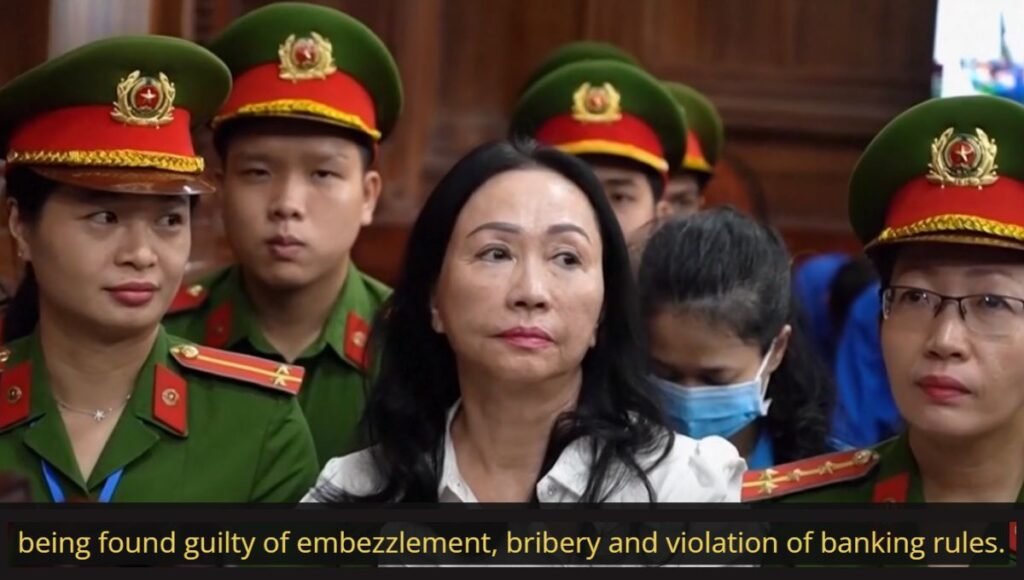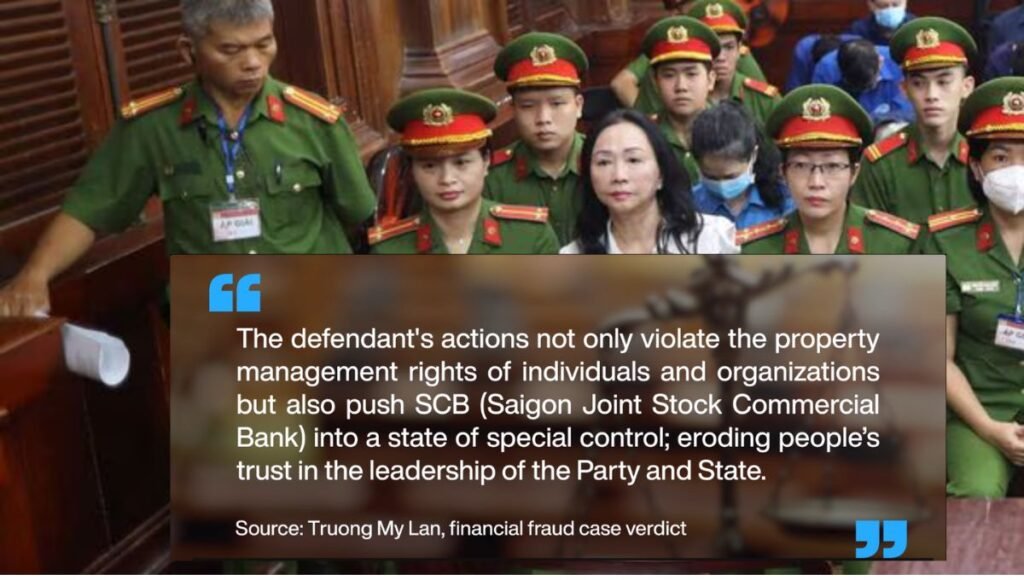In a recent and highly significant development, a prominent Vietnamese tycoon has been sentenced to death, sparking widespread discussions and debates both within Vietnam and internationally. The case of this tycoon, whose identity is central to this unfolding narrative, encapsulates various complex facets of contemporary Vietnamese society, its legal system, and the broader socio-political landscape. The implications of such a verdict extend beyond the individual involved, touching upon issues of governance, justice, and economic influence.

The Tycoon and His Impact
The tycoon in question, [Name], had risen to prominence through various business ventures, accruing substantial wealth and influence within Vietnam. His enterprises spanned multiple sectors, including real estate, manufacturing, and finance, contributing significantly to the nation’s economic growth. As a figure of such stature, his legal troubles and subsequent sentencing have undoubtedly sent shockwaves through the business community and society at large.
Legal Proceedings and the Death Sentence
The specifics of the legal proceedings leading to the tycoon’s death sentence highlight both the strengths and potential shortcomings of Vietnam’s legal system. While details may vary depending on the case, it’s essential to recognize the broader context within which such high-profile trials unfold. Issues like transparency, due process, and the rule of law come to the fore, raising critical questions about the fairness and impartiality of judicial processes.
Deterrence or Symbolism?
The imposition of a death sentence, particularly on a figure of substantial wealth and influence, raises questions about the intent behind such a severe verdict. Is this a genuine measure to uphold justice and deter egregious crimes, or does it carry a symbolic weight meant to signal governmental resolve in combating corruption and abuses of power? These are pertinent questions that underline broader societal concerns and expectations.
Socio-Political Ramifications
Beyond legal and judicial considerations, the tycoon’s fate holds broader socio-political ramifications. In Vietnam, where economic growth has transformed the social fabric, issues of wealth inequality, corruption, and governance remain pressing concerns. The tycoon’s story becomes emblematic of deeper systemic challenges that require nuanced solutions and broader societal engagement.
International Perspectives and Reactions
The tycoon’s death sentence has not gone unnoticed on the international stage. It underscores broader discussions about human rights, legal standards, and the rule of law in Vietnam. Countries and organizations invested in Vietnam’s economic development and geopolitical stability are closely monitoring these developments, with potential implications for diplomatic relations and investment climate.
Economic Influence and Beyond
The tycoon’s business empire and subsequent downfall shed light on the intertwined nature of economic power and political influence. In Vietnam, as in many emerging economies, navigating the nexus between business interests, governance, and regulatory oversight is crucial for sustainable development and societal well-being. The tycoon’s case highlights the challenges and opportunities inherent in managing economic growth responsibly.
The Role of Governance and Transparency
At its core, the tycoon’s story underscores the critical importance of governance and transparency in shaping Vietnam’s future trajectory. Efforts to enhance accountability, strengthen institutions, and foster greater transparency are essential not only for investor confidence but also for fostering a fair and just society where the rule of law prevails.
Looking Ahead: Lessons and Considerations
As Vietnam grapples with the fallout from this high-profile case, there are important lessons to be learned and considerations to be taken into account. The balance between economic progress and social equity, the role of the legal system in upholding fundamental rights, and the imperative of transparent governance are all areas deserving of renewed attention and action.
In conclusion, the sentencing of a prominent Vietnamese tycoon to death represents far more than a singular legal event. It serves as a lens through which to examine deeper societal dynamics, legal frameworks, and governance challenges. How Vietnam navigates these challenges in the aftermath of this case will undoubtedly shape its trajectory in the years to come, both domestically and internationally.
